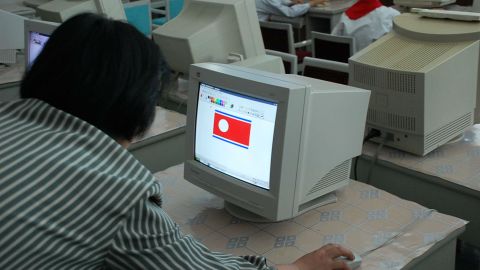Making The Grade in The Impossible State

What is the Big Idea?
Step into a classroom in North Korea and you will find very little that differs from a classroom in New York City – chalkboard, rows of desks, chairs, desktop computers and bulletin boards full of text and pictures. But stay a little longer and you might notice something amok about the curriculum.
“In North Korea today, the average student doesn’t know that a man has landed on the moon because that would connote that the United States had done something that was incredibly successful,” said Victor Cha, Asia adviser for former President George W. Bush.
In Cha’s new book The Impossible State: North Korea, Past and Future, he notes that North Korean students learn grammatical conjugations by reciting “We killed Americans,” “We are killing Americans,” “We will kill Americans.” They learn math with word problems that add and subtract the number of dead Americans.
Watch Victor Cha talking about education in North Korea:
What is the Significance?
North Korea’s education system breeds students who are insecure and belligerent towards the rest of the world. This will be a problem as reunification between the North and the South is imminent, “and I think for many in South Korea, the United States, China and elsewhere, we have to start preparing for this,” says Cha.
“I think that North Korea is now sort of reaching the end of its rope,” Cha told Big Think. “It is one of the last remaining regimes from the Cold War, in fact, probably the last remaining country of the Cold War era, and it is now going through a third generation leadership transition to someone who’s not really ready for the job.”
The majority of North Koreans, however, won’t be able to seamlessly incorporate themselves into a unified Korean society because of the large gaps in knowledge.
“Massive educational reform and retraining will be needed to make this transition happen.” Cha writes.
North Korea’s claims of a 99 percent literacy rate and 96 percent enrollment is highly suspect.
When East and West Germany reunified, 80 percent of those in the east had to undergo retraining in order to function in the newly unified economy. The gaps between the two Germanys were not nearly as great as those in North and South Korea.
“The unified Korean government will, at least for some time, have to deal with a greatly stressed social service system, providing high levels of educational, unemployment, and health-care subsidiaries, and will have to watch out for potential social disorder such as increased rates of alcoholism, drug addiction, gambling, or crime,” Cha writes.





